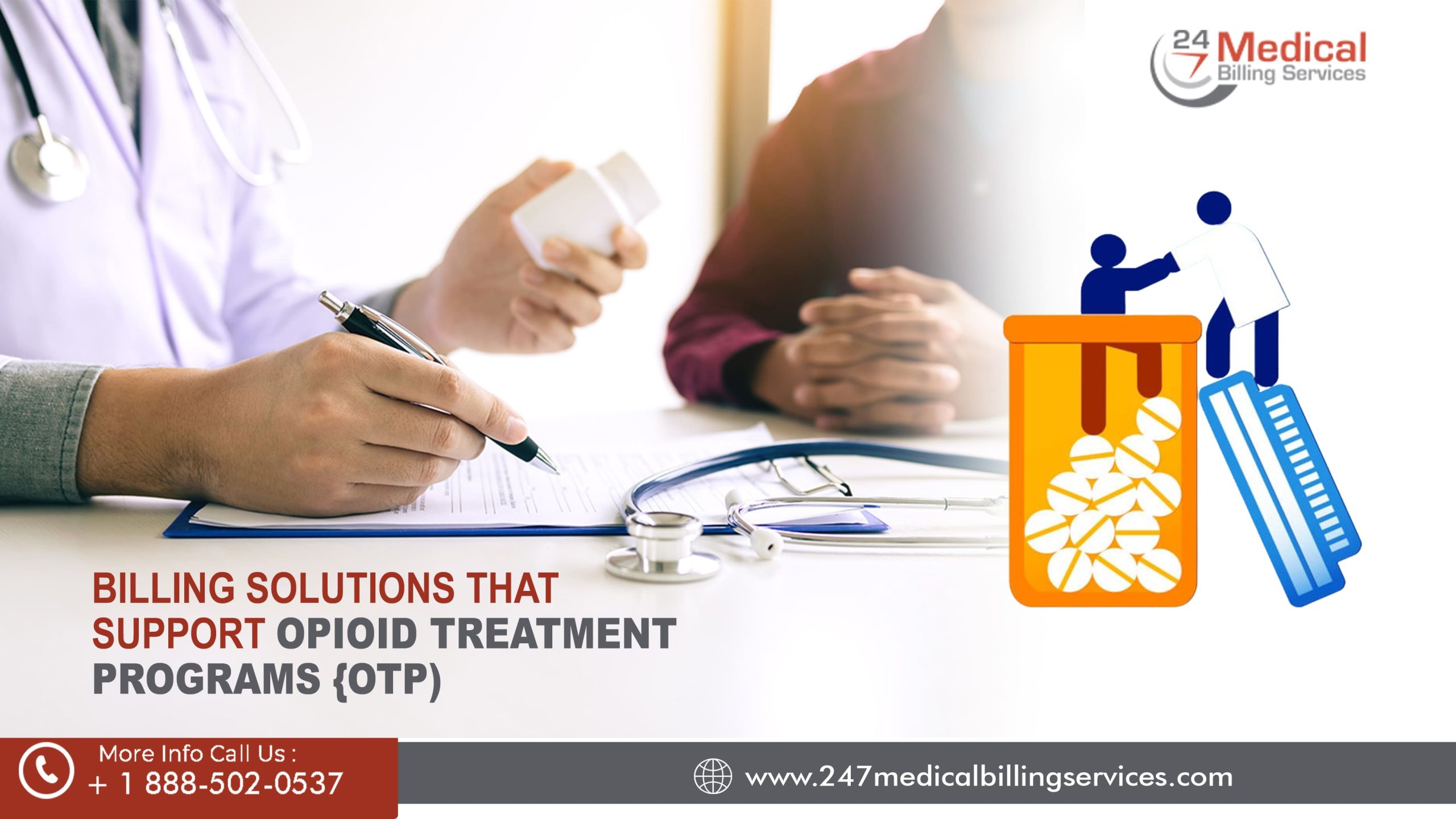
Billing Solutions that Support Opioid Treatment Programs (OTP)
As Opioid Treatment Programs (OTPs) play a crucial role in addressing the opioid epidemic by providing essential services to individuals with opioid use disorder (OUD), ensuring accurate and timely billing is paramount. Implementing streamlined billing solutions tailored to the unique needs of OTPs not only facilitates proper reimbursement but also provides the continuity and sustainability of these vital treatment services.
Here, we delve into various billing solutions and guidelines specifically designed to support OTPs, covering both institutional and professional billing solutions. In fact, OTPs can optimize their financial operations while delivering high-quality care to individuals seeking treatment for opioid addiction by understanding and implementing these billing solutions.
Billing Solutions for Opioid Treatment Programs (OTP)
-
Institutional Providers
Institutional providers supporting Opioid Treatment Programs (OTPs) can efficiently bill for their services using the Form CMS-1450 (UB-04). For freestanding non-residential OTPs, it's crucial to use the appropriate Type of Bill (TOB) code, specifically 087x. Provider-based OTPs should apply condition code 89, while hospital-based OTPs and those based in Critical Access Hospitals should use TOB 013x and 085x, respectively. Additionally, revenue codes 090x-091x and 0949 should accurately reflect OTP services on the billing form.
-
Professional Providers
Professional providers within Opioid Treatment Programs can streamline their billing processes using the Form CMS-1500. When submitting claims, it's essential to specify the correct Place of Service (POS) code, with code 58 designated for Non-Residential Opioid Treatment Facility. Furthermore, including the relevant HCPCS codes associated with OTP services and any add-on services, along with their respective dates of service, ensures accurate billing. Additionally, there is a need to provide the NPI for prescribing or ordering individual and organizational NPI for proper reimbursement.
-
Full Episode of Care
Billing for a full episode of care in OTPs requires adherence to specific guidelines. The healthcare providers must ensure that at least one service, either from the drug or non-drug component, is provided to the patient during the corresponding week of the episode of care. In cases where a drug is not provided, billing the appropriate G-code, such as G2074, for a weekly bundle without the drug, along with at least one service from the non-drug component, is necessary. Conversely, if a drug is provided, billing the corresponding G-code describing the weekly bundle, including the drug, is required for accurate reimbursement.
-
G-Codes Frequency
The hospitals offering telecommunication services as part of Opioid Treatment Programs must adhere to specific HCPCS add-on codes. These codes, including G2076, G2077, and G2080, facilitate billing for services such as treatment initiation, periodic assessments, and additional counseling or therapy via various communication technologies. In fact, it is essential to ensure compliance with these guidelines as it allows providers to accurately reflect the nature of services provided to patients receiving treatment for opioid use disorder.
-
Billing Cycle Solutions
Efficient billing cycles are integral to the smooth operation of Opioid Treatment Programs. The healthcare providers can opt for a standard billing cycle, commencing on a chosen day of the week for all episodes of care, with the date of service being the first day of the weekly billing cycle. Alternatively, adopting weekly billing cycles tailored to individual patient admissions or Medicare billing start dates ensures accurate billing and reimbursement, with the date of service corresponding to the first day of each seven days.
-
Claims Submission Guidelines
Submitting claims promptly and accurately is essential for Opioid Treatment Programs to receive proper reimbursement. Providers must file claims promptly, ensuring submission within one calendar year after the service date to avoid potential denial by the Medicare Administrative Contractor (MAC). Additionally, applying modifiers as required, such as modifiers 95 and 93 for counseling and therapy provided via audio-video or audio-only technology, respectively, and using the appropriate POS code (58) for all OTP services, ensures claims accuracy and compliance.
-
Payment Rates Solutions
Understanding payment rates and adjustments is crucial for Opioid Treatment Programs to maintain financial viability. Providers must adhere to weekly payment adjustments for Intensive Outpatient Program (IOP) services provided by OTPs for OUD treatment, ensuring services are medically reasonable and not duplicative of bundled payments. Not only this but there is a need to refer to the Final Rule Payment Rates for OTPs as it provides clarity on national payment rates for various services, including OTP HCPCS G-codes, drug costs, and non-drug costs. However, adjustments based on geographic locality may apply, impacting payment rates and reimbursement levels accordingly.
Outsourcing to 24/7 Medical Billing Services
Outsourcing OTPs billing tasks to 24/7 Medical Billing Services presents a valuable solution for Opioid Treatment Programs (OTPs) seeking to streamline administrative processes and ensure financial stability. These outsourcing partners have the knowledge and resources to ensure compliance with Medicare and other payer guidelines, reducing the risk of claim denials or audits. Moreover, outsourcing allows OTP staff to redirect their focus toward delivering quality patient care, as dedicated professionals efficiently handle billing tasks. Through efficient processes and technology, outsourced billing services can enhance coding and claim submission accuracy, minimizing errors and maximizing reimbursement potential. For OTPs, outsourcing billing functions not only offers a cost-effective solution but also provides peace of mind, knowing that their financial operations are in capable hands. To know more, call us at 888-502-0537 or email us at info@247medicalbillingservices.com

.png)